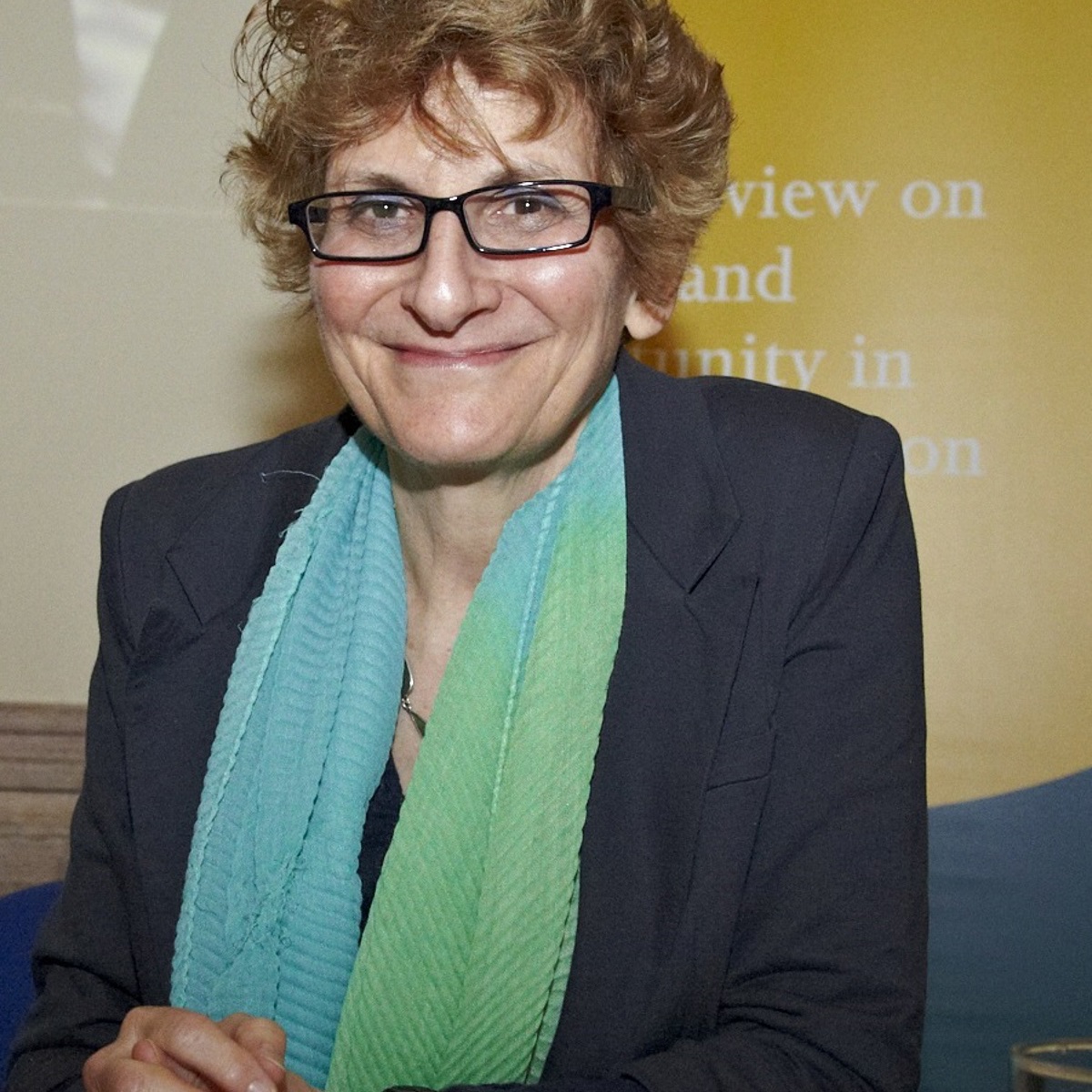

Professor Joan Dassin
Professor of International Education and Development and Director of the Masters Program in Sustainable International Development at the Heller School for Social Policy and Management at Brandeis University.
Scholarships for individuals to pursue international education can lead to more equitable, sustainable, inclusive, and prosperous communities. This is the central claim explored in the new book International Scholarships in Higher Education: Pathways to Social Change that I recently edited with Robin Marsh and Matt Mawer. The book draws together research and critical analysis by nearly two dozen authors from Africa, Asia, Australia, Europe, North America, and Latin America.
Through a social justice lens, Pathways to Social Change examines and analyses the role of scholarships – in our view much more than simple funding mechanisms – in broadening access to international education and extending its benefits beyond individual recipients. Guided by the central metaphor of five distinct 'pathways' through which scholarships can lead to social impacts, the book focuses on how scholarships are shaped by (and shape) current trends in international education, global development, programmatic design, and evaluation methodologies. Its broader purpose is to help consolidate the emerging field of research, policy, and practice on scholarships and social change. This is a fundamental task that has potential to enrich understanding of scholarship outcomes and improve programme design worldwide.
A book on scholarship programmes: why now?
Two converging trends make this an opportune moment for a systematic (but not reductionist) review of international scholarship programmes and their broader social justice effects. First are shifts in the landscape of international higher education and a heightened focus on scholarships as a tool for global development. Second is the emergence of new research and methodologies for assessing scholarships as a social policy instrument, which has also revealed gaps in information and data collection. While no single book can rectify all these omissions, Pathways to Social Change presents a systematic review of research results and evaluation frameworks that can be successfully applied to international scholarships.
Situating scholarship programmes in a changing higher education and development landscape
Scholarships – continuously in high demand since the inaugural class of Rhodes Scholars in 1903 – are part of a progressively changing global landscape in international education. Data from the OECD's Education at a Glance publication indicates that the number of globally mobile students more than doubled to 4.5 million students between the turn of the millennium and 2016. China is the dominant sending country, while new hubs in Asia and the Gulf states – although still outpaced by Europe and the United States – now attract a substantial proportion of international students. Globalisation, which places a premium on human capital as the key to economic growth, is a major driver of the boom in international education. It has bolstered developing countries' incentives to invest in international education for talented youth, especially for studies in science and technology, including through large government scholarship programmes such as Brazil's Scientific Mobility Program.
Despite this shifting landscape, global mobility remains a privilege for a tiny minority of students, with most international students being self-funded. In 2014/15, for example, only 5% of globally mobile students received scholarships, including 1% receiving funding from foreign or domestic governments, according to research conducted by the Institute of International Education. Rising global inequality has sparked new strategies, even within developed countries, to extend international education opportunities beyond the usual elites. Some governments and private donors are investing heavily in scholarship schemes targeted at promising, but typically excluded members of marginalised communities, with the explicit intention of 'levelling the playing field' for both international and domestic study. Programmes such as the Ford Foundation International Fellowships Program (IFP), the Moshal Scholars Program (MSP) and the MasterCard Foundation Scholars Program seek to achieve their broader social justice aims by broadening access to higher education among previously disadvantaged populations.
A related factor is the rediscovery of higher education by the United Nations and other multilateral agencies. After nearly three decades of emphasis on primary education, the international development world has officially recognised the importance of post-secondary education for building competitive economies, as well as achieving specific educational goals, such as successful school to work transitions for youth and lifelong learning for adults. A call to 'substantially expand globally the number of scholarships available to developing nations, for enrolment in higher education' is included as Goal 4b in the United Nations' Sustainable Development Goals.
Building a coherent, holistic research community around scholarships
International scholarships still comprise a fragmented landscape. A study by Perna and colleagues documented 183 programmes in 196 countries, not counting programmes supported by private donors, international agencies, bilateral and multilateral organisations, local governments or NGOs. Basic information about programmes' size, duration, and results, including recipients' socioeconomic profiles, is not always available to researchers, while donors who commission single-programme studies may be reluctant to share their findings. In addition, practitioners – with notable exceptions including several of the contributors to our book – are often too busy on the front lines of scholarship administration to reflect on post-graduation outcomes beyond evaluations of their own programmes.
Despite these obstacles, over the past decade researchers from international education, economics, public policy, and international relations and development have begun to examine scholarship programmes and their broader social impacts. The increased interest stems from pressure to demonstrate funding outcomes and use results to improve programme design and delivery, as well as calls for greater transparency in public spending. In an era of increased competition for both government resources and private philanthropic funding, scholarship programmes must produce credible evidence to support claims about their positive effects.
This policy environment is conducive to more sophisticated research on scholarship programmes, such as counter-factual and longitudinal studies that focus on the specific contributions of scholarship programs and their long-term effects. However, far more (and more detailed) empirical research using different methodological approaches, especially locally based, qualitative studies of former scholarship holders' post-study experiences, is required. Pathways to Social Change reviews the state of research and research methodology, and suggests strategies for enriching and deepening analysis of scholarship outcomes.
The view from the book
Pathways to Social Change responds to these converging trends in three principal ways. First, it examines a range of design, implementation, and evaluation issues related to scholarship programmes, drawing on contributions from researchers, policy makers, and scholarship administrators from around the world. Within this framework, the book explores topics such as funding trends, individual scholarships and their relation to institutional capacity building initiatives, selection criteria that balance financial need with academic achievement and leadership potential, and the added value of providing recipients with opportunities for civic engagement during their academic programmes.
Several chapters analyse the complex dynamics of return in the post-scholarship period and examine the persistent question of 'brain drain', especially from small developing countries with high rates of skilled out-migration. Since many donors equate success with physical return, the risk of 'brain drain' can be a deterrent to investments in international education. Yet it can also be argued – as one contributor does – that requiring scholarship holders to return home after graduation is counterproductive, even coercive, because it prevents them from exercising personal agency and competing in the global labour market. An alternative approach, also explored in the book, is to provide graduates with continued access to social networks, scholarly resources, professional training, and even financial support. By facilitating the re-integration process, these features increase the likelihood that former scholarship holders will produce positive changes in their home countries.
Five detailed case studies in the book cover a range of programmes: the Brazilian Scientific Mobility Program; the Open Society Scholarship Programs; the Commonwealth Scholarship and Fellowship Plan; the Chinese Government Scholarship Program; and the MasterCard Foundation Scholars Program. In conjunction with in-depth regional analyses of scholarships in the 'ecosystems' of higher education across Africa and in India, these case studies allow for deeper contextualisation of the book's crosscutting themes.
Second, the book applies its 'social change' lens to examining the 'state of the art' in scholarship research and evaluation. It analyses the methodological and conceptual difficulties of measuring the long term, broader impacts of scholarship programmes that constitute positive social change. Summarising research on outcomes, the book concludes that strong evidence supports the frequent claim that international scholarships provide clear benefits to individual recipients. In contrast, empirical evidence is weaker that individual scholarships play a direct role in affecting organisations and institutions, much less societies as a whole.
Similarly, most short-term tracer studies – by definition – fail to reveal the long-term impacts of funding an individual's education. Some programmes and agencies, including IFP, the MasterCard Scholars Program and the Commonwealth Scholarship Commission, are conducting longitudinal studies. Other studies, such as a 2013 evaluation of the USAID-funded Latin America and Caribbean (LAC) Higher Education Scholarships Program, employ quasi-experimental methodologies that involve tracking down unsuccessful candidates or other control groups to assess the difference a scholarship has made in an individual's subsequent career path and influence on his or her field, institution, and community. Nonetheless, these evaluation methodologies are time-consuming and expensive, and are not yet the norm.
Going further, the book argues that 'social impact' is itself a relative notion. Individuals' educational and career trajectories, and hence their broader impacts on society, can only be fully understood in terms of their social identities and the particular geopolitical and economic context in which they operate as change agents. The need for evaluating individual results in terms of specific social contexts also argues for more qualitative, field-based research and greater participation of local researchers in impact assessments.
What's the takeaway message?
Not surprisingly, International Scholarships in Higher Education: Pathways to Social Change concludes that there is no single answer or unified view of how to maximise social change outcomes through individual scholarships for international education.
However, the book reaffirms its basic premise that scholarship programmes and award recipients break down barriers and foster positive change through multiple pathways. It highlights the adaptability of scholarship programmes, and signals that the emerging field of research on scholarships and social change has a full plate of further research questions to explore. These include the relationship between access and social mobility, deeper analysis of the role played by host universities in social change outcomes, issues around conditionality and return, whether intra-regional and South-South exchanges will yield the same kind of benefits as study in Western host countries, and how the inexorable rise of online technologies will alter the prevailing paradigm of access to and exclusion from higher education.
Mindful of its overall purpose, the book also offers several concrete recommendations. These include making programme evaluations public, preparing a detailed bibliography on a shared electronic platform, and constituting a global research network. If these and other similar measures prove feasible and productive, and the book generates further discussion and debate, it will have achieved its broader purpose of helping to consolidate the emerging field of research, policy, and practice on scholarships and social change.
The Measuring Success blog series draws from the ACU's experience in scholarship design, administration, and analysis, and our connections in the sector, to explore the outcomes of international scholarship schemes for higher education.
